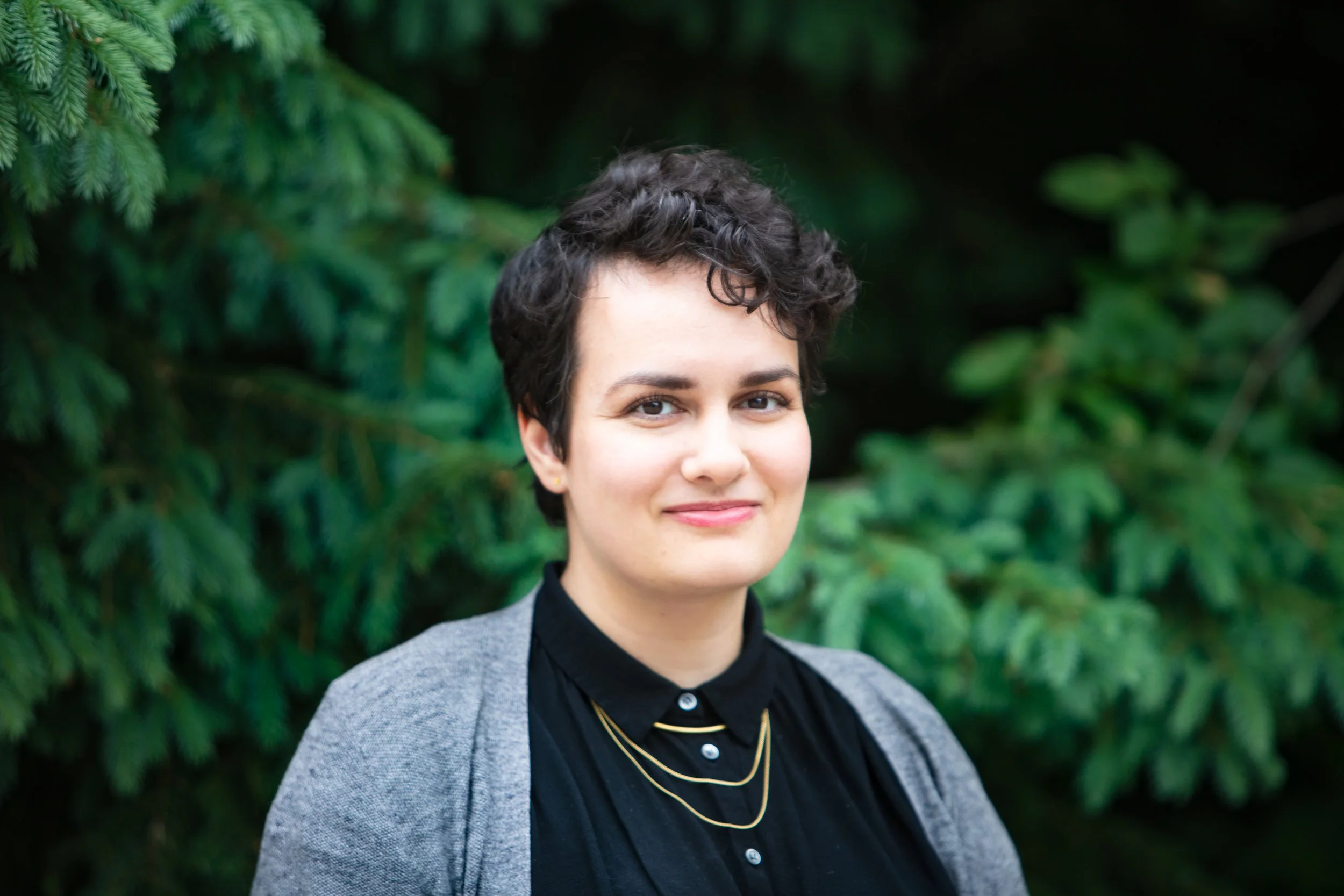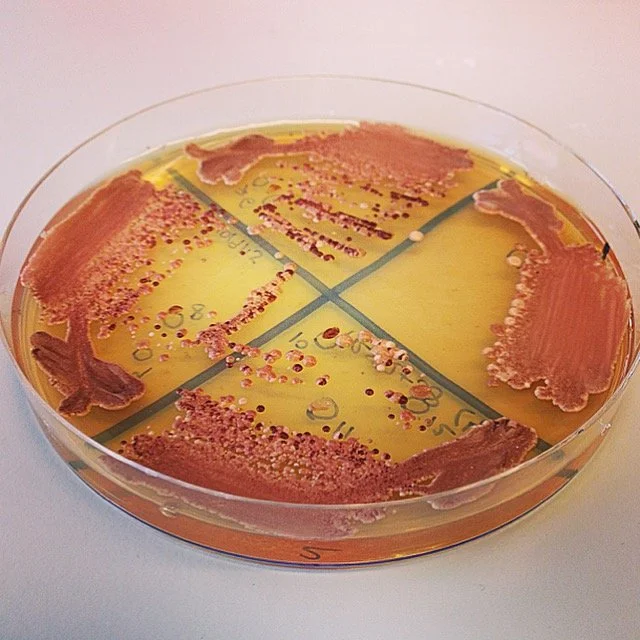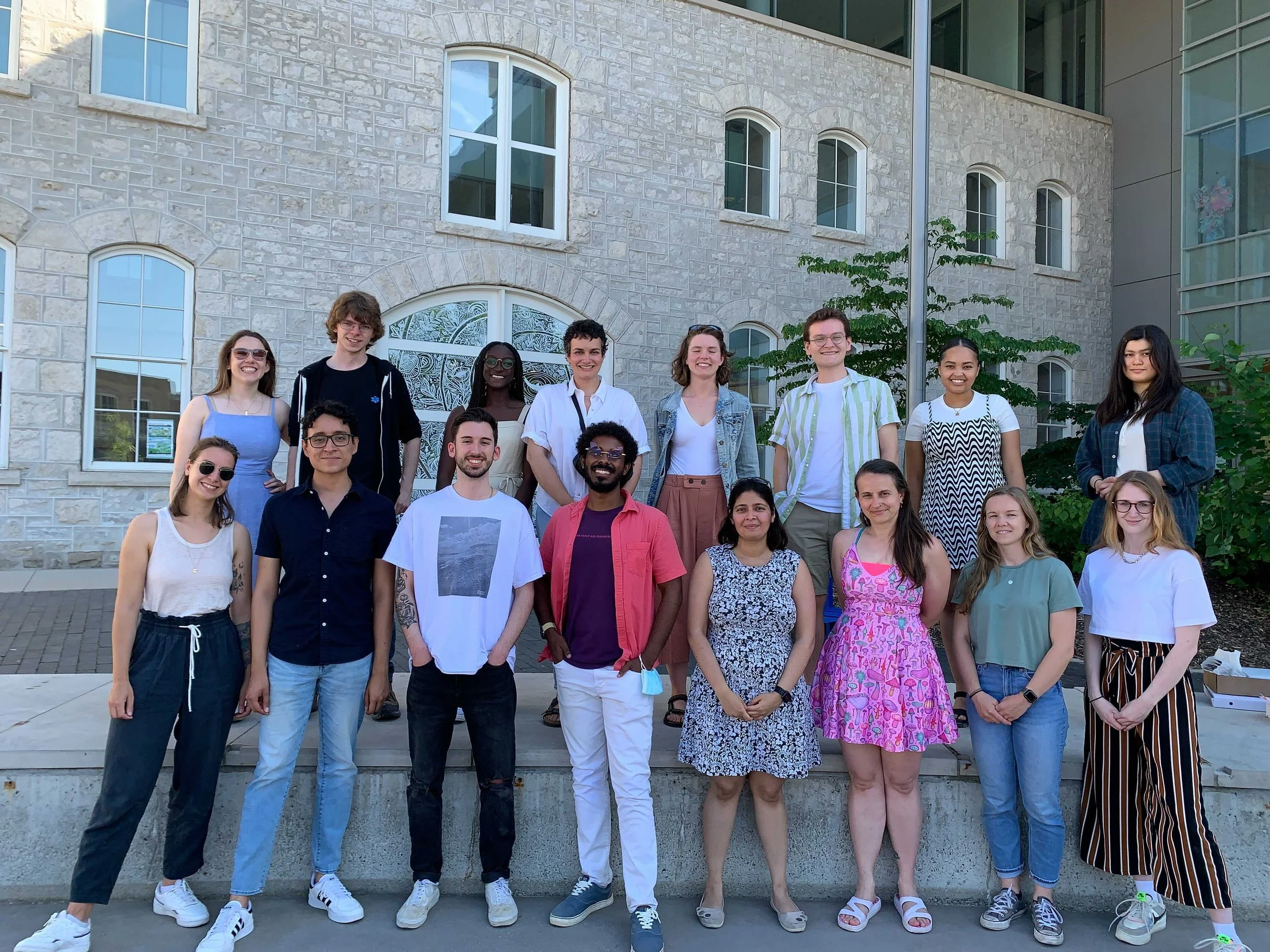Quick Chat: Professor Dr. Rebecca Shapiro
EMMA LINDSAY - 31 OCTOBER, 2022
Dr. Rebecca Shapiro is an assistant professor at the University of Guelph, in the Department of Molecular and Cellular Biology. She’s been at the University of Guelph since January of 2018, and runs a research group here where they study the genetics of fungal pathogens. Their research is centred around understanding the important genetics and biology of human associated fungal pathogens. They interface with the synthetic biology world by developing, optimising, and tinkering with new tools that manipulate the genetics of pathogens in order to better understand their biology, how they cause disease, and how they respond to antifungal drug treatments. They develop CRISPR based tools that are used to functionally manipulate the genomes of different fungi, and from there, address big questions in how genetics play a role in the biology of these organisms.
What are some of the current projects going on in your lab?
We always have lots of projects on the go. In reality, I don’t do any of the real research. I do lots of the thinking, mentoring, and guiding, but there's a fabulous group of graduate students, postdocs, technicians, and folks in undergrads in the lab that all have incredibly exciting projects, and have a lot of cool things on the go.
One of the things we've been really excited about, with regards to the development of CRISPR technologies and their use in fungal pathogens, is developing new CRISPR tools that allow us to very easily manipulate the genes in a diversity of different strains of a species. When we are talking about fungal pathogens, one of the main pathogens we work on in our lab is Candida albicans, which is a pathogenic yeast. It’s one of the most ubiquitous and common fungal pathogens in the world. It causes yeast infections, which are incredibly common. It also causes systemic bloodstream infections, which are very life threatening and occur in more immunocompromised people. This is a broad pathogen that causes all sorts of disease, and that's our main organism of study. Often when one develops these genetic manipulation tools, the focus is on working on a single strain background. But, with something like Candida, this is a clinical organism, it's found in most people, most of us have Candida in or on our bodies in a commensal state, but it can also cause these severe outbreaks and infections. There's also a real interest in being able to analyse many different strains, looking at different clinical isolates and how they're different from one another. To do this, we've been trying to develop CRISPR tools that are very easy to work with that can then be transported and used in a diversity of different types of clinical isolates or other kinds of isolates of these strains. A lot of the work that we’ve been doing has focused on developing CRISPR regulatory systems. The classic CRISPR, this gene editing idea, is what we often talk about. CRISPR cuts DNA, and we provide it with some sort of repair template to fix the break, and that allows us to incorporate a new piece of genetic materia so that it can allow us to insert or delete something from the genome or actually change the genetic code in some way. That's what CRISPR classically has been. A lot of what we've been trying to optimise recently is these regulatory systems which instead of actually manipulating the genome, allow us to use modified CRISPR to either upregulate or downregulate the expression of genes. Not the actual genetic code, but how much the gene is expressed, which allows us to control things more closely because we can turn down or turn up the expression of a gene. By turning down the expression of the gene, this has the benefit of allowing us to study essential genes, because those ones can’t be deleted, the cell would die, but we can turn down the expression which allows us to study them in a way that we couldn't before. Similarly, overexpression also allows us to study these different kinds of factors. We've been developing these CRISPR interference or CRISPR activation systems, respectively, that allow us to manipulate the expression of different genes to study their function, and has the benefit of being this very simple single plasmid based system that allows us to go into all sorts of different strains simultaneously, and again study gene function, not just in standard lab strains of Candida but also in all sorts of different clinical isolates.
There is a lot of circulation and news about CRISPR, do you think the public has a good conception of CRISPR?
That is a good question. It certainly is everywhere. I think everyone’s uncle or neighbour has sent them an article about this, or is asking those questions. It certainly entered the public understanding, it won the nobel prize last year, it's working its way into popular media in different ways. I think there's probably a reasonable surface level understanding of what it can do or that it’s genetic editing. There is certainly, at this stage, very prominent human therapeutics that are being developed with regards to CRISPR, so that is making its way into the people’s understanding. I think, as with anything genetic editing, it will always arouse some controversy or some mixed interpretations because of this idea of interfering with natural states or natural biology. There's always towing that line of trying to reach public understanding, while having an understanding of people's rational fears or concerns about things like this. I think it's important to nuance the application of these things, how we use them, when we use them, and how we consult with ethical guidelines.
What inspired you to get into synthetic biology and focus on CRISPR applications?
When I went to grad school, I did a PhD that focused on understanding the genetics of Candida so I’ve been working in Candida species for a long time. I would say that was more classical microbiology research. When I shifted to do a post doctoral fellowship after grad school, I went to a lab that was much more synthetic biology focused, and the focus there was much more on bacteria. There’s been a lot more rapid uptake of synthetic biology tools and techniques in bacteria for various reasons, they grow fast, they’re easy to work with. I was a person with fungal expertise from my PhD now in a synthetic biology lab, so it was a cool and exciting opportunity to start taking some of these tool kits and systems and try to apply them in fungi. I also started my post doc in 2013 which was right when CRISPR tools came into play. It was the very early days of the development of these tools, so it was a very exciting opportunity to try to co-opt these tools in fungi, where historically we just have far less access to genetic manipulation tools and techniques than we do in other species and other pathogens. It was a good moment in time and an exciting bridging of different expertise.
Do you have advice for new PI’s that are starting their career?
I think many people would agree it’s one of the best jobs there is. It is such an exciting, and constantly evolving and dynamic job. I mentor students, I teach, I write papers, I write grants, I do interviews. I kinda do whatever I want. I think the advice is, because it comes with a lot of freedom, I think what has been helpful to me is to try to focus on the parts of it I really like the most. Which is not always possible, everyone has to do things they don’t want to do, that’s also part of the job. But, because there’s so much freedom I am able to say yes to opportunities that I think are exciting and interesting. Focus on things that really exploit your expertise. By the time you've reached this stage, you've become an expert in something, so formulate what that niche is and who you are. I seek out, and say yes to opportunities that really allow me to grow in this area, my little corner of the research world. Also, working with people who you want to work with. The job is highly collaborative. I work with many researchers and PI’s but I also work with the students in my group, and there’s a lot of freedom and flexibility to who you want to work with, and that is an amazing perk of this job. I seek out people who I want to work with because we have things in common, and it's fun chatting with them. By seeking out the people that you want to engage with and spend your time with, this allows your work life to be much more fun and enjoyable.
The Shapiro Lab Research Team
In the long term, what are some obstacles you believe the synthetic biology field will have to face?
Some will come down to regulatory issues and hurdles. How much any of the tools can actually be used as therapeutics, or bred into new crops, or actually make it out into the world and the market. I think that becomes a huge hurdle, which then ties into public perception and the pressure of the people. If people really don’t want CRISPR edited plants in the grocery store, then that's what's going to trickle into policy. Communication with the general population and the policy makers becomes a big hurdle to the field. It’s very different in Europe to the US to Canada. There's very different public perceptions and regulations as a result. I think that says there is room for improved communication. You can see there's a diversity and spectrum of acceptance and perception.
Do you believe Canada needs any resources to help strengthen synthetic biology research?
I think there's general things that affect a lot of research fields that are not unique to synthetic biology. The constant discussion of how much funding we are injecting into research at the federal level is an ongoing source of concern for all researchers. Relating to that is how much funding exists for graduate students, who are the ones who actually execute the research. This has been an important topic of conversation recently because graduate student stipends that are paid for by federal granting agencies haven't changed in a very long time. The cost of living has increased significantly, so we're sort of hitting a crisis point for overall funding for research, be it for running the research program overall, or for funding and training graduate students specifically. We need money that funds labs, but also money that funds students, and that pays students a fair living wage, because that is changing, and we haven't kept up as a country. I think if we don’t keep up we will lose students, and students are the ones that are executing the research. Those are the folks that are really pushing things forward. If we start to lose the most excellent, prospective students, either they leave to another country or skip grad school altogether, that's going to be a significant issue. Money is an obvious answer, we always need money. But it's been great to see the synthetic biology community in Canada has coalesced. I know there's been big synthetic biology initiatives through Ontario Genomics or Genome Canada, and those funding agencies have started to build more in the synbio area, which is super great. I know that the Canadian iGEM teams have all started to connect more through cGEM and all these other programs. Also, building more conferences pertaining to synthetic biology, I know there's local ones that happen here in Ontario, and I’m sure there’s many others. There’s been all this really great momentum. That’s another important part, building up the research community which allows researchers to connect to one another, and share expertise, and resources.



